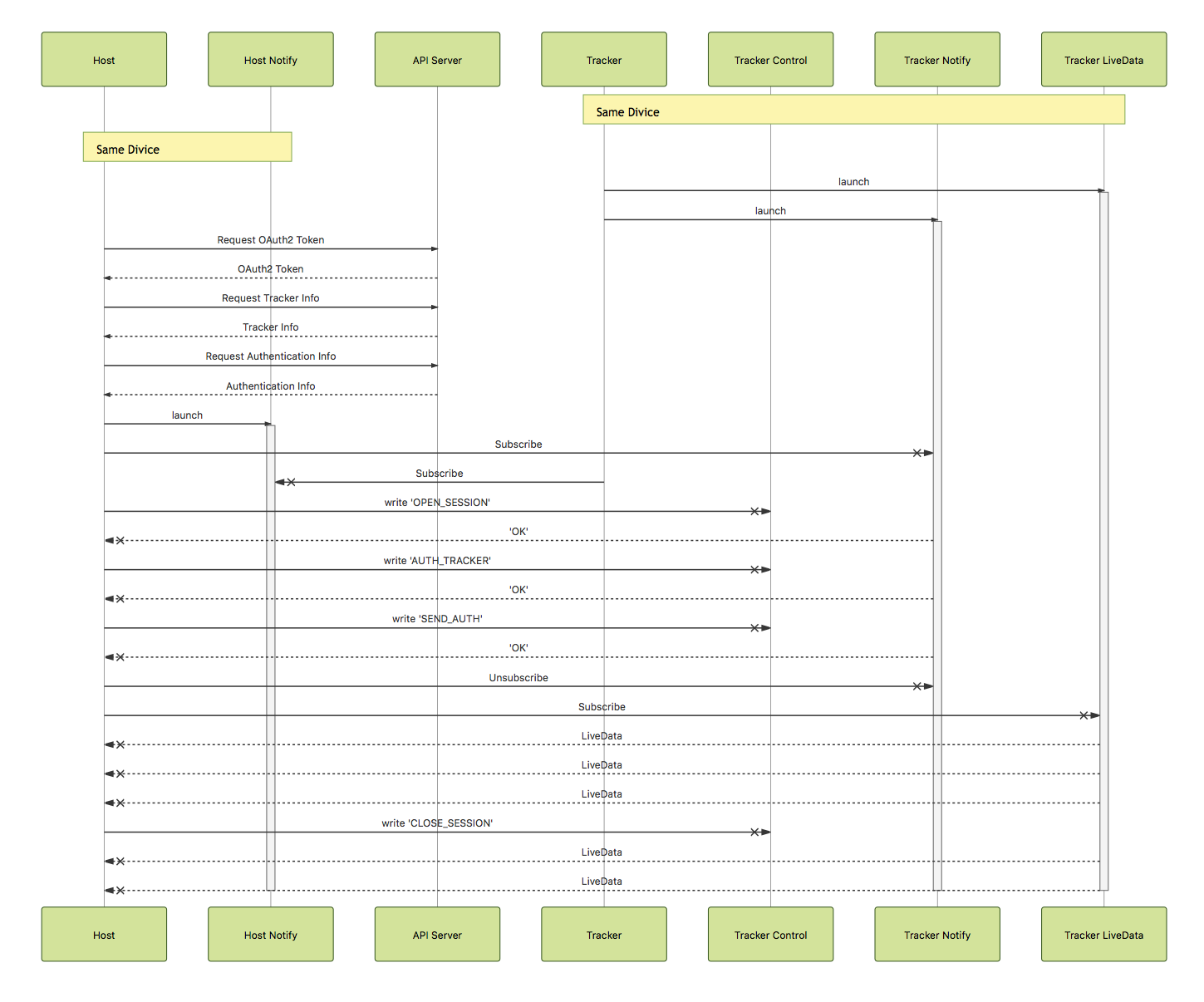node-fitbit-livedata
This project aims to getting livedata from Fitbit tracker
!!! CAUTION !!!
This is an UNOFFICIAL and EXPERIMENTAL module.
Using this module sometimes forcibly logs out from fitbit application on your mobile device.
Requirement
- Host Machine
- macOS El Capitan
- Windows10 Creators Update or later
- Raspbian 4.9
- Runtime
- node.js (v6 or later)
- Java (v1.8.0 or later)
- Fitbit Account
- Fitbit Tracker(Device) registered in the above account
-
Supported Trackers are
- Charge HR
The following trackers are not supported yet.
- Ionic
The following trackers are not verified yet.
# I don't have them- Charge 2
- Alta HR
- Blaze
- Flyer
- Flex 2
- Surge
- Charge
- Flex
- One
- Zip
- Ultra
- Force
- Aria 2
-
Remarks
for Mac
Using this module on macOS, you need to connect or sync the macOS and your tracker with the official application only once before using this module.
for Windows
Because of using noble-uwp (it's very useful !), the version of your windows has to be Creators Update or later.
And this module on Windows can't get heart rate from your trackers.
for Raspbian
If you want to get heart rate from your trackers, you need to comment out the line in node_modules/bleno/lib/hci-socket/bindings.js (bleno's issue)
for Trackers
Some trackers need to be set On or Auto about heart rate using FItbit app for a smartphone, and sync after that.
Install
Install as library
Do npm install(or npm i) in your project directory.
$ cd /path/to/your/project/$ npm i fitbit-livedataAfter npm install, you can see this module in dependencies of your package.json, the key is fitbit-livedata and the value is the path to node-fitbit-livedata.
$ cat /path/to/your/project/package.jsonInstall as CLI tool
$ npm i -g fitbit-livedataUsage
Usage as library
; fitbit;fitbit; const accounts = username: fitbitUser1_Username password: fitbitUser1_Password username: fitbitUser2_Username password: fitbitUser2_Password // :;const trackers = ; accounts;Usage as CLI tool
$ fitbit-livedata -u <USERNAME> -p <PASSWORD>{"device":{"name":"Charge HR","address":"XX:XX:XX:XX:XX:XX","serialNumber":"0123456789ab"},"livedata":{"time":"YYYY-MM-DDThh:mm:dd.sssZ","steps":5700,"distance":4024236,"calories":1220,"elevation":13,"veryActive":2,"heartRate":80}}{"device":{"name":"Charge HR","address":"XX:XX:XX:XX:XX:XX","serialNumber":"0123456789ab"},"livedata":{"time":"YYYY-MM-DDThh:mm:dd.sssZ","steps":5700,"distance":4024236,"calories":1220,"elevation":13,"veryActive":2,"heartRate":82}} :If you want to connect to only one tracker, add the tracker name( e.g. "Charge HR") with --trackername/-t option.
$ fitbit-livedata -u <USERNAME> -p <PASSWORD> -t "Charge HR"Memo
Sequence Diagram between host, tracker and fitbit.com
